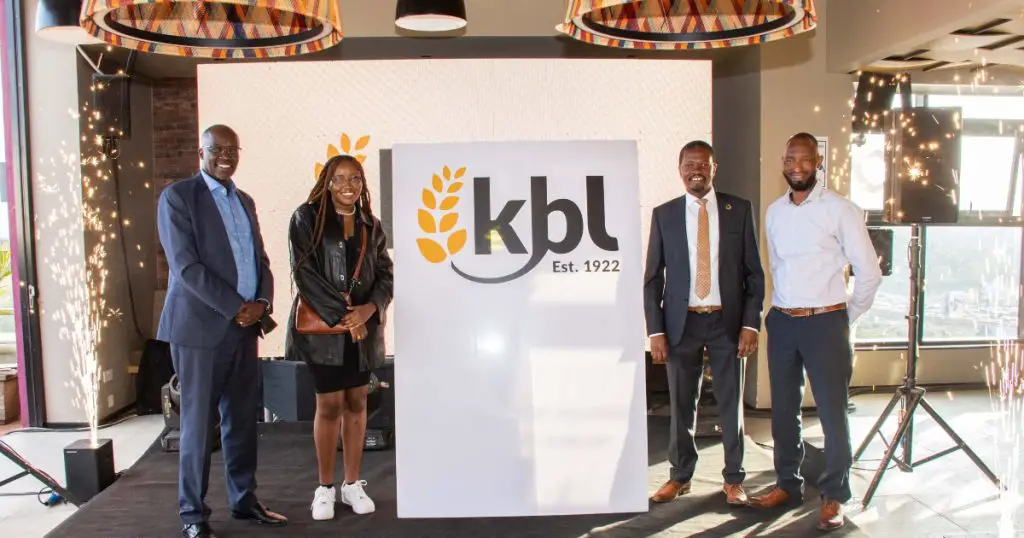- Kenya Breweries Limited (KBL) has launched a campaign to recruit over 5,000 new farmers to grow sorghum to produce Senator Keg beer
- Through East African Maltings Limited, KBL’s contract farming programme, Mtama Ni Mali, sources 100% of raw materials locally, providing a source of livelihood to over 40,000 smallholder farmers
- KBL provides a guaranteed market for farm output at competitive prices and, in the last financial year, paid over Ksh1.2 billion to smallholder sorghum farmers across the country
Kenya Breweries Limited (KBL) has launched a campaign to recruit over 5,000 new farmers to grow sorghum to produce their value beer, Senator Keg.
Through East African Maltings Limited (EAML), KBL’s contract farming programme, Mtama Ni Mali, sources 100% of raw materials locally, providing a source of livelihood to over 40,000 smallholder farmers drawn from Kisumu, Migori, Siaya, Homa Bay, Busia, Tharaka Nithi and Meru counties, among others.
KBL provides a guaranteed market for farm output at competitive prices and, in the last financial year, paid over Ksh1.2 billion to smallholder sorghum farmers across the country.
With the contractual farming model, farmers have easier access to inputs, such as improved seed varieties and fertiliser, and a ready market for their produce, enabling them to concentrate on enhancing yields to maximise profits.
“As part of our sustainability strategy, our goal is to ensure that the business shares economic benefits with local communities by improving livelihoods. Arid and semi-arid lands remain mostly unutilised in Kenya.
However, some native crops, such as sorghum, have been identified for their great survival chances even under conditions of high temperatures and low rainfall experienced in these regions. The introduction of beer made from sorghum has provided an opportunity to improve production and welfare for sorghum farmers”, Gerald Gacheru, EAML Head of Agribusiness.
“As a company leading the drive for sorghum commercialisation in Kenya, we are registering sorghum farmers who will grow and supply grain to our breweries,” Gacheru said.
“The local sourcing programme is a crucial business priority for us because it enables us to grow value together with the farmers in Kenya. We are also encouraging Persons with Disabilities not to shy away from joining the programme. In partnership with Sightsavers, we are currently working with over 140 differently abled farmers and looking to grow this number further.”
To boost uptake and maintain the highest grain quality, KBL will continuously train farmers on good agricultural practices, post-harvest handling and value addition. They will also be provided with quality seeds of improved varieties.
KBL uses digital growers’ management systems to eliminate paperwork and enable tracking of the growing and harvesting of sorghum in order to track farming activities.
The digital platform helps smallholder farmers gain access to formal markets and improve the effectiveness of outgrower schemes. It has introduced high levels of efficiency and real-time traceability of the activities in smallholder farms down to the specific farm and boosted compliance.
In a separate story, KBL recently scooped the prestigious overall energy management award at the 18th edition of the Energy Management Awards (EMA) hosted by the Kenya Association of Manufacturers (KAM) through its Centre for Energy Efficiency and Conservation.
KBL was recognised for making significant cuts in their energy consumption without negatively affecting their output.
KBL also bagged five more awards: Renewable energy; Water conservation; Electricity savings award for large consumers; Energy management; Best energy thermal saving award, large consumer; Sustained high-performance.
The Energy Management Awards seek to promote excellence in energy management by recognising industrial and commercial enterprises that demonstrate excellence in energy efficiency and conservation.
KBL Managing Director, John Musunga, said the company has set ambitious environmental targets, aligned with the United Nations Sustainable Development Goals.
“We have a responsibility as a local manufacturer and employer in Africa to grow our business sustainably while creating shared value. I am delighted for the recognition for our efforts towards reducing our carbon footprint and addressing climate change by embracing the use of clean and affordable energy. This is a demonstration of the strength of our commitment to pioneering grain-to-glass sustainability, positively impacting the communities in which we live and work.”
KBL recently invested in biomass boilers to replace heavy fuel oils, which will reduce their carbon emissions by 95% (about 34,000 tonnes a year). This is among the company’s biggest investments in addressing climate change issues.
